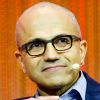7 Beginner-Friendly Political Economy Books to Start Your Journey
Satya Nadella, Diane Coyle, Kenneth Shepsle, and others recommend these Political Economy books for newcomers seeking clear, foundational insights


Every expert in Political Economy started exactly where you are now: at the beginning, eager to make sense of the forces shaping societies and markets. Political economy offers a unique lens to understand how politics and economics intertwine, influencing everything from policy decisions to global trade. Its accessibility grows with the right foundation, and these carefully chosen books provide clear, approachable pathways into the subject's core ideas and real-world relevance.
Leading figures like Satya Nadella, the CEO of Microsoft, and Diane Coyle, Bennett Professor of Public Policy at the University of Cambridge, have recommended these titles based on their ability to clarify complex concepts for newcomers. Nadella's endorsement of "The Great Transformation" highlights the value of historical context, while Coyle praises "Political Economy for Public Policy" for its rigorous yet accessible analysis of policymaking dynamics. Their insights reflect a shared commitment to teaching and making political economy understandable.
While these beginner-friendly books provide excellent foundations, readers seeking content tailored to their specific learning pace and goals might consider creating a personalized Political Economy book that meets them exactly where they are. This option offers a customized approach, blending expert knowledge with your unique interests and background to build confidence and clarity from the start.
Recommended by Diane Coyle
Bennett Professor of Public Policy, University of Cambridge
“This book brings some much-needed clarity and rigor to the analysis of public policy: What are the aims of policy, what are the inescapable dilemmas and trade-offs, and what are the pitfalls in government action? Above all, its essential message is that effective policy analysis is impossible without taking account of the political realities and the difficulties of implementation.”
by Ethan Bueno de Mesquita··You?
by Ethan Bueno de Mesquita··You?
What makes Ethan Bueno de Mesquita's Political Economy for Public Policy exceptionally beginner-friendly is its clear framework that removes much of the complexity surrounding how politics shapes policymaking. Drawing on his expertise at the University of Chicago, Bueno de Mesquita guides you through foundational concepts like social choice theory and game theory applied to real policy dilemmas, such as externalities and coordination problems. You’ll learn to see policy not just as economics or politics alone, but as a fusion of both, illuminated by case studies and empirical evidence throughout chapters focused on normative foundations and political constraints. This book suits anyone starting out in political science or public policy who wants a coherent introduction grounded in rigorous analysis rather than jargon.
Recommended by Satya Nadella
CEO of Microsoft
Karl Polanyi's decades as a senior editor and university lecturer shaped this penetrating examination of the Industrial Revolution's seismic impact on society and markets. You’ll explore how the era’s shift to a self-regulating market disrupted social fabrics, revealing the hidden tensions and risks of unrestrained capitalism. Chapters unpack the failures of market fundamentalism and the social consequences that still echo today, making the book especially relevant for those curious about globalization’s roots. If you want to understand why economic systems can’t be divorced from social concerns, this book lays that foundation with clear historical analysis and thoughtful critique.
by TailoredRead AI·
This tailored book offers a personalized introduction to the core concepts of political economy, designed to match your background and learning pace. It explores foundational ideas such as the relationship between politics and economics, market functioning, and policy influences, providing a clear and approachable pathway for newcomers. By focusing on your specific interests and goals, the content removes complexity and builds confidence gently, ensuring you grasp essential themes without overwhelm. The tailored approach helps you engage deeply with the subject matter, emphasizing understanding over memorization, and creating a learning experience centered on your comfort and curiosity.
Recommended by Anthony Chen
Northwestern University professor
“This is the rare edited volume that features real intellectual heft. It not only bids fair to reorient the study of American political life but it also promises to shape the scholarly sensibilities of generations to come. Drawing on contributions from a dazzling roster of luminaries and rising stars, it makes a compelling case that political economy should occupy a central place in our understanding of American politics.”
by Jacob S. Hacker, Alexander Hertel-Fernandez, Paul Pierson, Kathleen Thelen··You?
by Jacob S. Hacker, Alexander Hertel-Fernandez, Paul Pierson, Kathleen Thelen··You?
Jacob S. Hacker, a Yale political science professor with extensive expertise in American politics, collaborates with leading scholars to examine the unique structure of the U.S. political economy. You’ll gain insight into how fragmented political institutions, powerful business groups, and deep-rooted racial divisions shape economic and political outcomes. The book breaks down complex interactions, such as the role of courts and regional conflicts, revealing how democratic capitalism operates in practice. This volume suits anyone aiming to understand American political economy beyond surface-level explanations, especially newcomers seeking a clear but rigorous introduction.
by A. Leontiev·You?
by A. Leontiev·You?
Drawing from his experience as a prominent Soviet economist, A. Leontiev presents the fundamentals of Marxist political economy in a way that invites newcomers rather than overwhelms them. You’ll gain a clear understanding of core concepts like labor theory of value, capital accumulation, and class dynamics, especially through the lens of early Soviet thought. The book’s straightforward explanations demystify complex economic relations without sacrificing rigor, making it suitable if you want to grasp foundational Marxist perspectives. If you prefer an entry point that balances theory with historical context, this book offers a concise introduction, though it’s best paired with supplementary materials for broader economic views.
by Melani Cammett··You?
by Melani Cammett··You?
What sets this book apart is how Melani Cammett, with her deep expertise in Middle Eastern politics, translates complex regional economic and social dynamics into clear, approachable explanations. You explore how economic development, state policies, and social actors intertwine across decades, with chapters that dissect topics like labor markets, urbanization, and the Gulf's oil economies. The new edition even unpacks "crony capitalism" and the aftermath of the Arab uprisings, offering you a nuanced understanding of recent shifts. If you want to grasp the Middle East’s political economy without getting overwhelmed by jargon, this book lays a solid foundation.
by TailoredRead AI·
by TailoredRead AI·
This tailored book explores the fundamentals of political economy with a clear, accessible focus designed to match your background and interests. It examines how economic principles and political realities intersect in policymaking, offering a personalized learning experience that removes overwhelm by pacing content according to your comfort level. The approach reveals core concepts progressively, helping you build confidence and understanding step-by-step. By concentrating on your specific goals, it delves into political economy frameworks and their practical relevance in policy analysis, making complex ideas approachable for newcomers. This tailored resource ensures you engage deeply with essential topics without unnecessary complexity, making your learning both efficient and rewarding.
by Robert W. Cox, Michael G. Schechter·You?
by Robert W. Cox, Michael G. Schechter·You?
What makes this book different from others in its field is how Robert W. Cox revisits his foundational ideas on international political economy with fresh insights relevant to today's globalized context. You’ll explore key themes like global civil society, the dynamics of power and knowledge, and the role of multilateralism through Cox’s critical lens, enhanced by Michael Schechter’s introductory essay that addresses contemporary critiques. The book challenges you to think about world order and civilizations beyond simple economic analyses, offering a nuanced understanding of political economy’s moral and civilizational dimensions. It’s especially suited for you if you want a thoughtful, reflective approach rather than just theory-heavy jargon.
by Theodore H. Cohn, Anil Hira··You?
by Theodore H. Cohn, Anil Hira··You?
This book transforms the complex field of international political economy into accessible insights, reflecting the combined expertise of Theodore H. Cohn and Anil Hira, both seasoned political science professors. You’ll gain a nuanced understanding of global economic dynamics including trade wars, populism, climate change, and migration, all framed within key theoretical perspectives and practical developments. Detailed discussions on topics like Brexit, US–China competition, and global value chains bring current events into sharp focus, making it a solid foundation for anyone new to political economy. Whether you're a student or curious about global affairs, this book offers clear explanations without overwhelming jargon, helping you connect theory with today’s geopolitical shifts.
Begin Political Economy with Confidence ✨
Build your foundation with personalized guidance tailored to your goals.
Thousands started their journey with these foundations
Conclusion
This collection of seven books creates a layered introduction to political economy, blending historical foundations, policy frameworks, and regional insights. If you're completely new, starting with "The Great Transformation" or "Political Economy for Public Policy" builds a solid base in understanding economic history and policy analysis. For a focused look at specific contexts, "The American Political Economy" and "A Political Economy of the Middle East" offer detailed perspectives.
For those ready to expand, "Global Political Economy" and "The Political Economy of a Plural World" invite you to explore international dynamics and critical reflections on global power structures. Meanwhile, "Political Economy: A Beginner's Course" introduces foundational Marxist thought, rounding out your grasp of political-economic theories.
Alternatively, you can create a personalized Political Economy book that fits your exact needs, interests, and goals to create your own personalized learning journey. Building a strong foundation early sets you up for success in understanding this complex, ever-relevant field.
Frequently Asked Questions
I'm overwhelmed by choice – which book should I start with?
Starting with "The Great Transformation" offers a clear historical overview that grounds your understanding. Alternatively, "Political Economy for Public Policy" provides a practical framework for how politics shapes policies. Both are highly recommended by experts and approachable for beginners.
Are these books too advanced for someone new to Political Economy?
No, these books are specifically chosen for their beginner-friendly approach. For example, "Political Economy for Public Policy" breaks down complex theories into understandable concepts, making it accessible even if you're new to the field.
What's the best order to read these books?
Begin with historical and foundational texts like "The Great Transformation," then progress to applied policy analysis with "Political Economy for Public Policy." From there, explore regional and global perspectives to deepen your understanding.
Should I start with the newest book or a classic?
Both have value. Classics like "The Great Transformation" provide essential historical context, while newer works like "The American Political Economy" offer up-to-date analysis. Combining both enriches your perspective.
Do I really need any background knowledge before starting?
No prior background is needed. These books are crafted to build your understanding step-by-step, with clear explanations that assume no prior knowledge in political economy.
Can I get a learning path tailored to my specific interests and pace?
Yes! While these expert-recommended books offer solid foundations, you can also create a personalized Political Economy book tailored to your interests, experience level, and learning goals for a customized, efficient path.
📚 Love this book list?
Help fellow book lovers discover great books, share this curated list with others!
Related Articles You May Like
Explore more curated book recommendations






